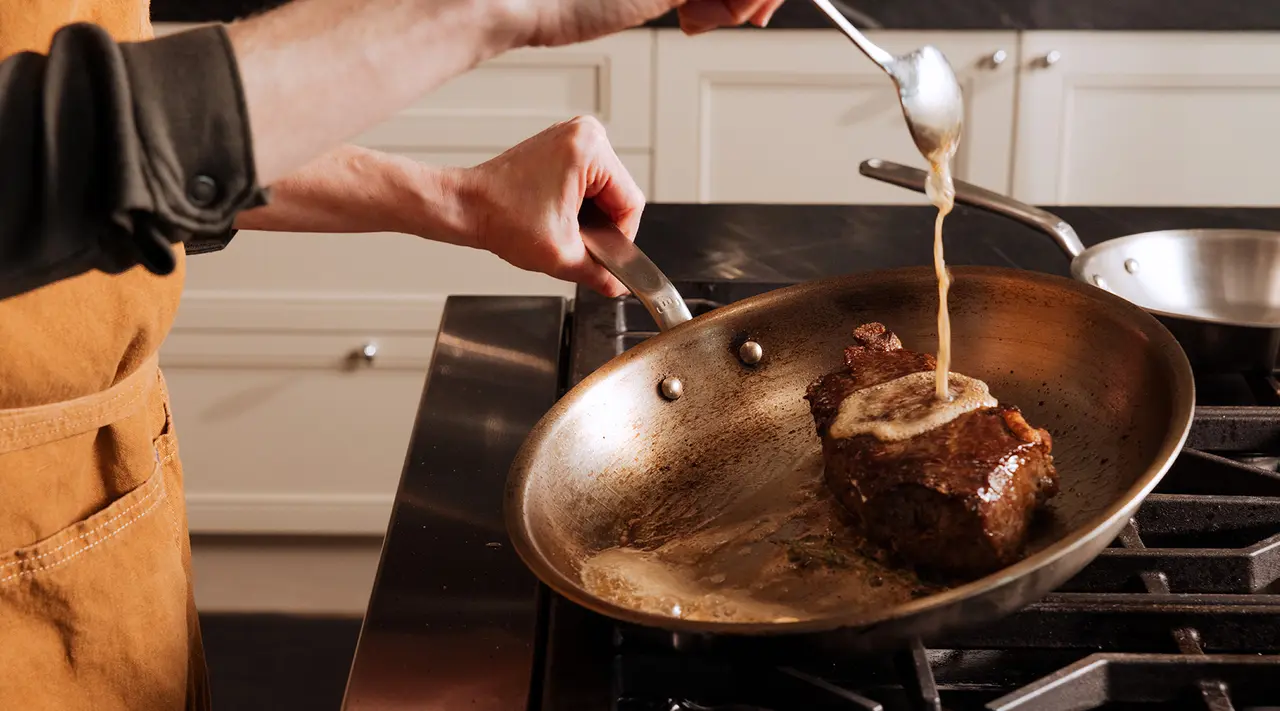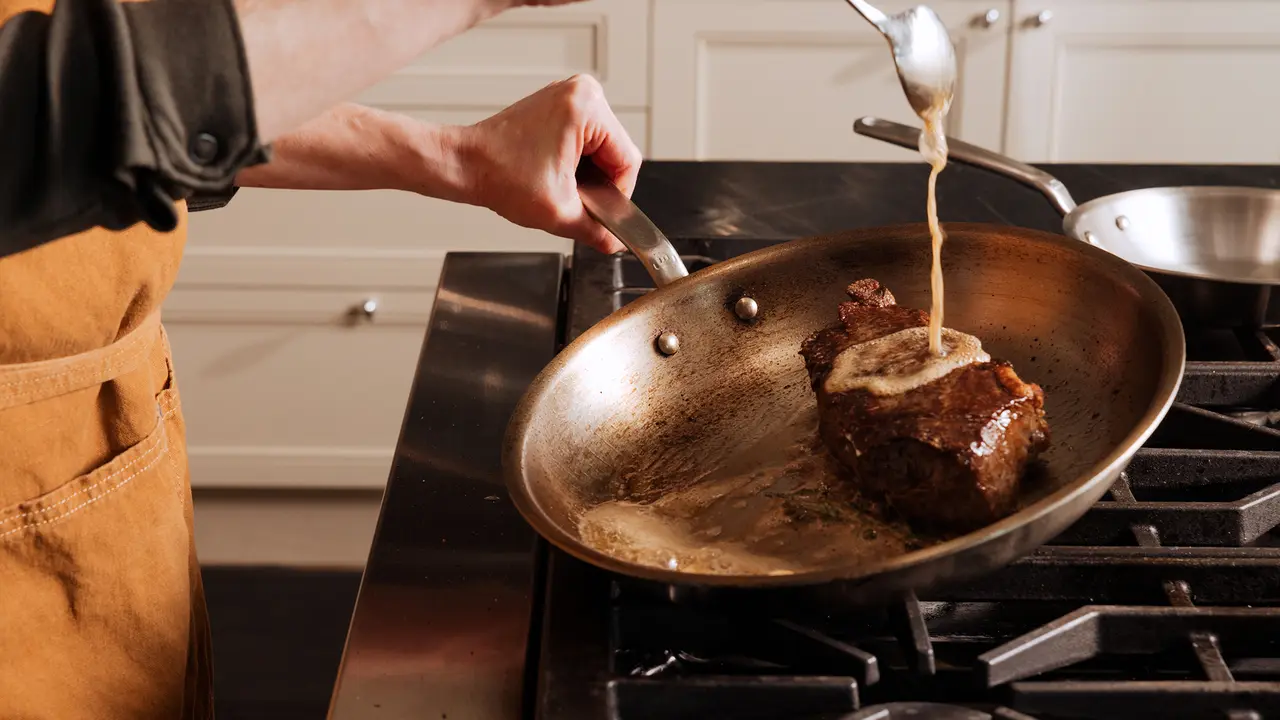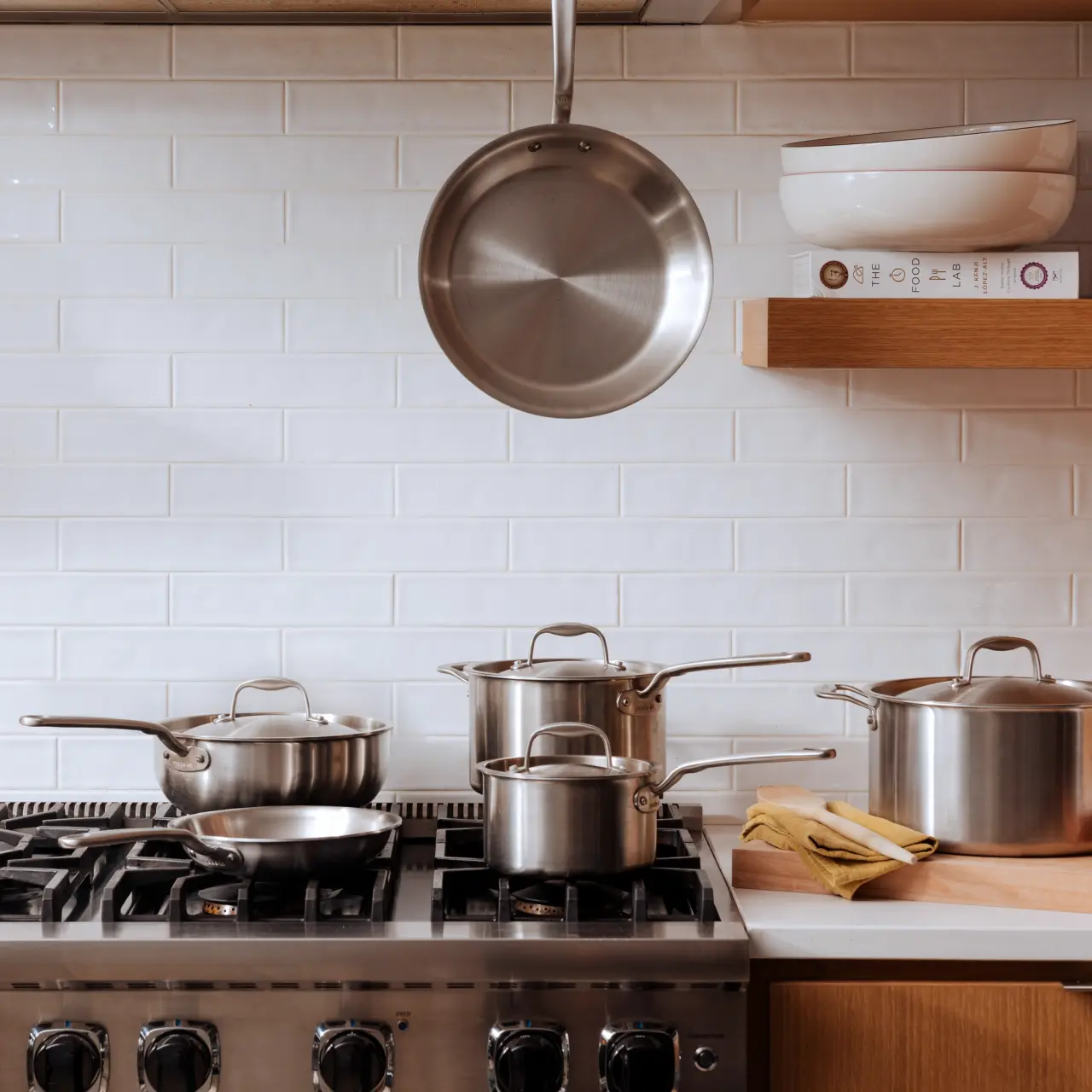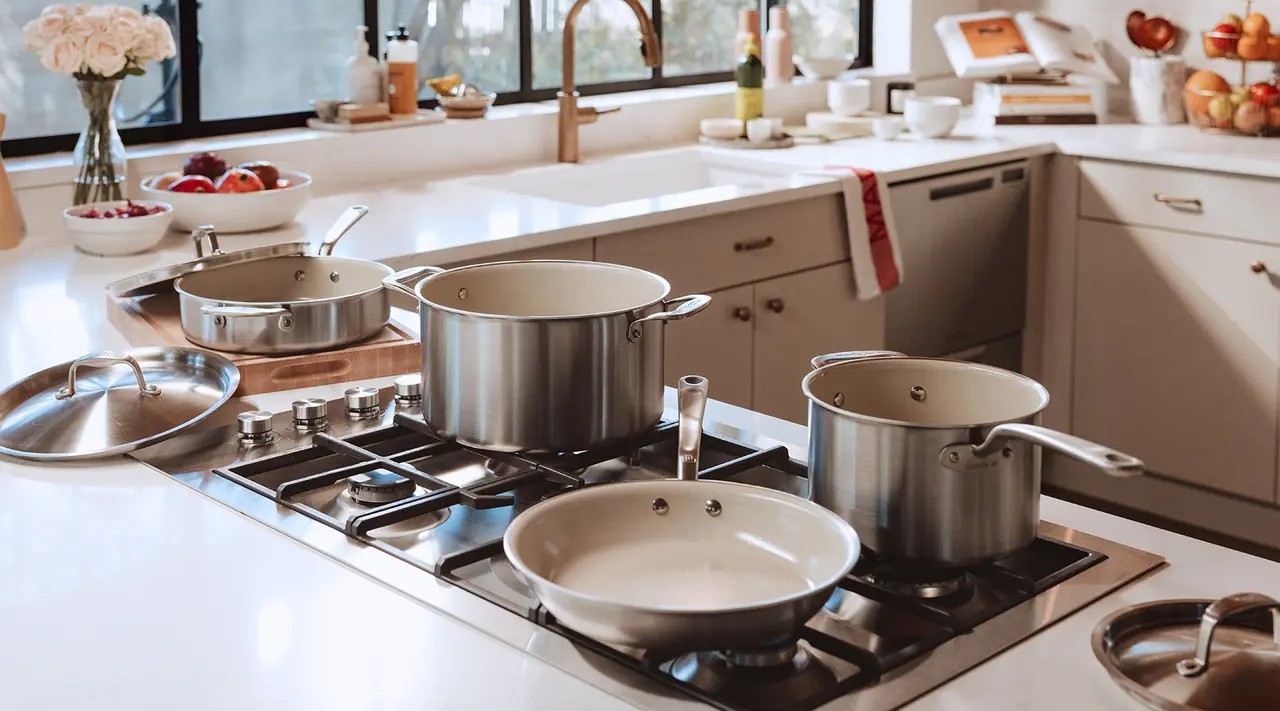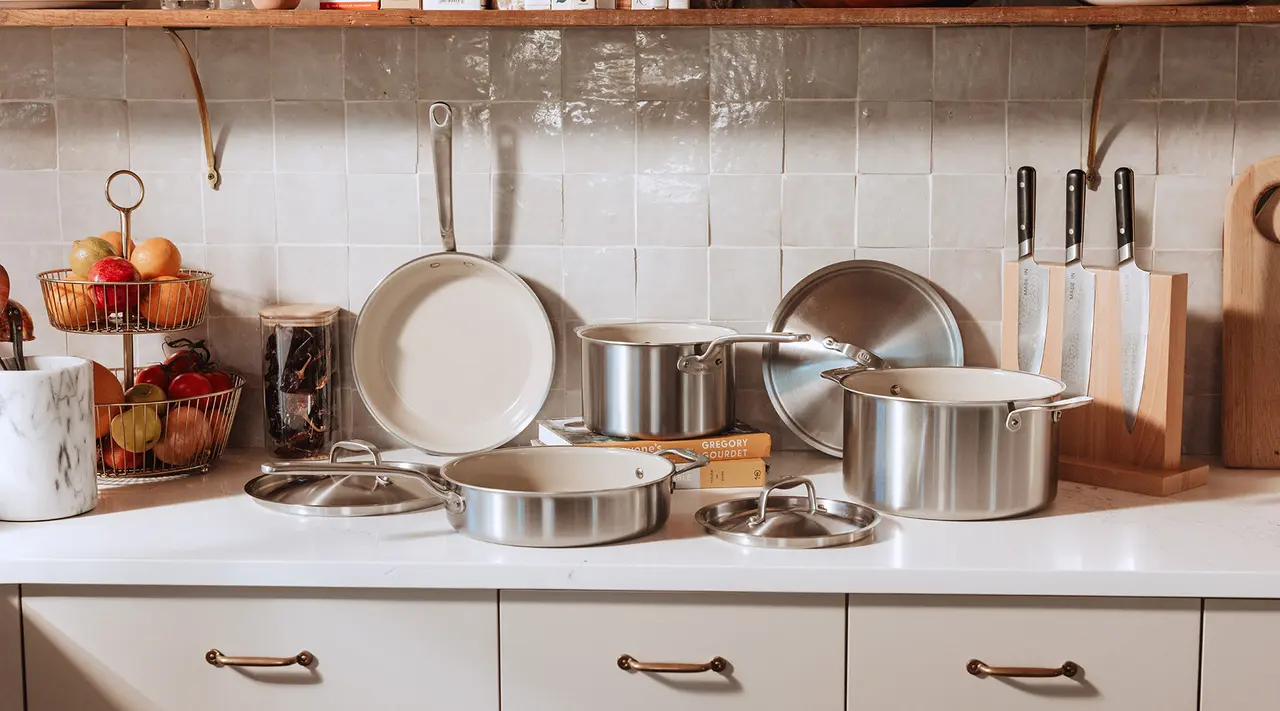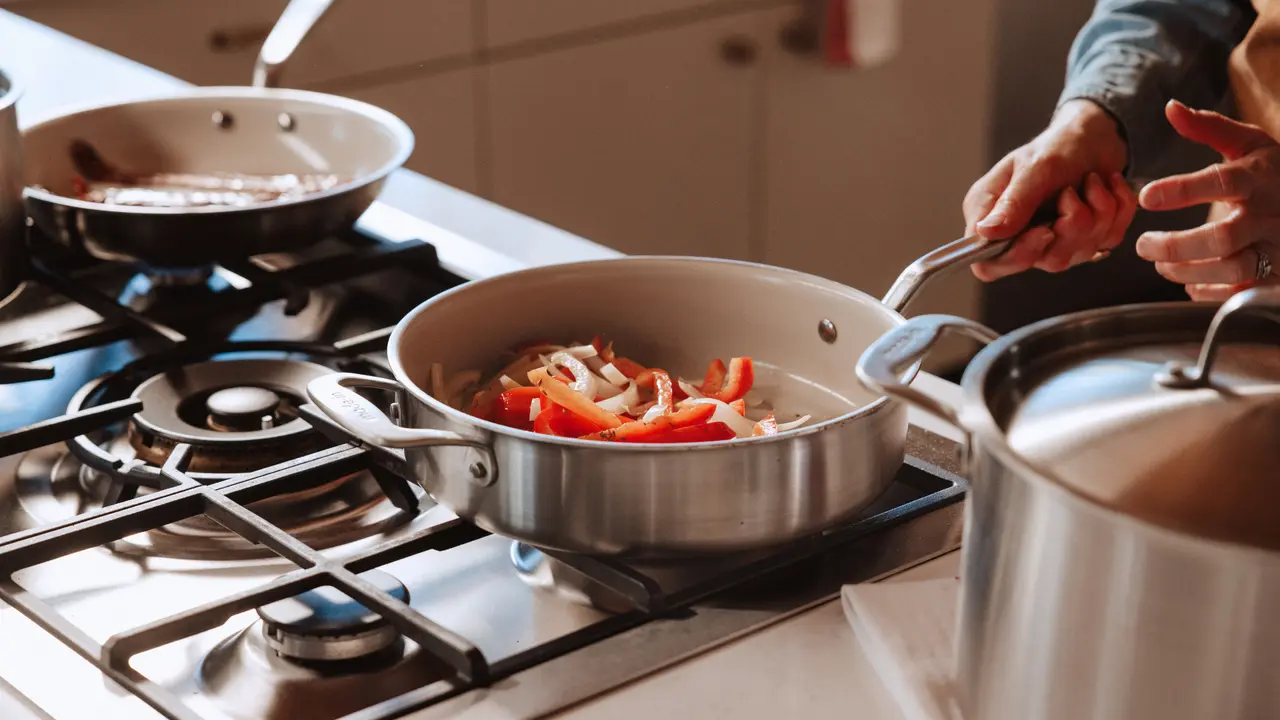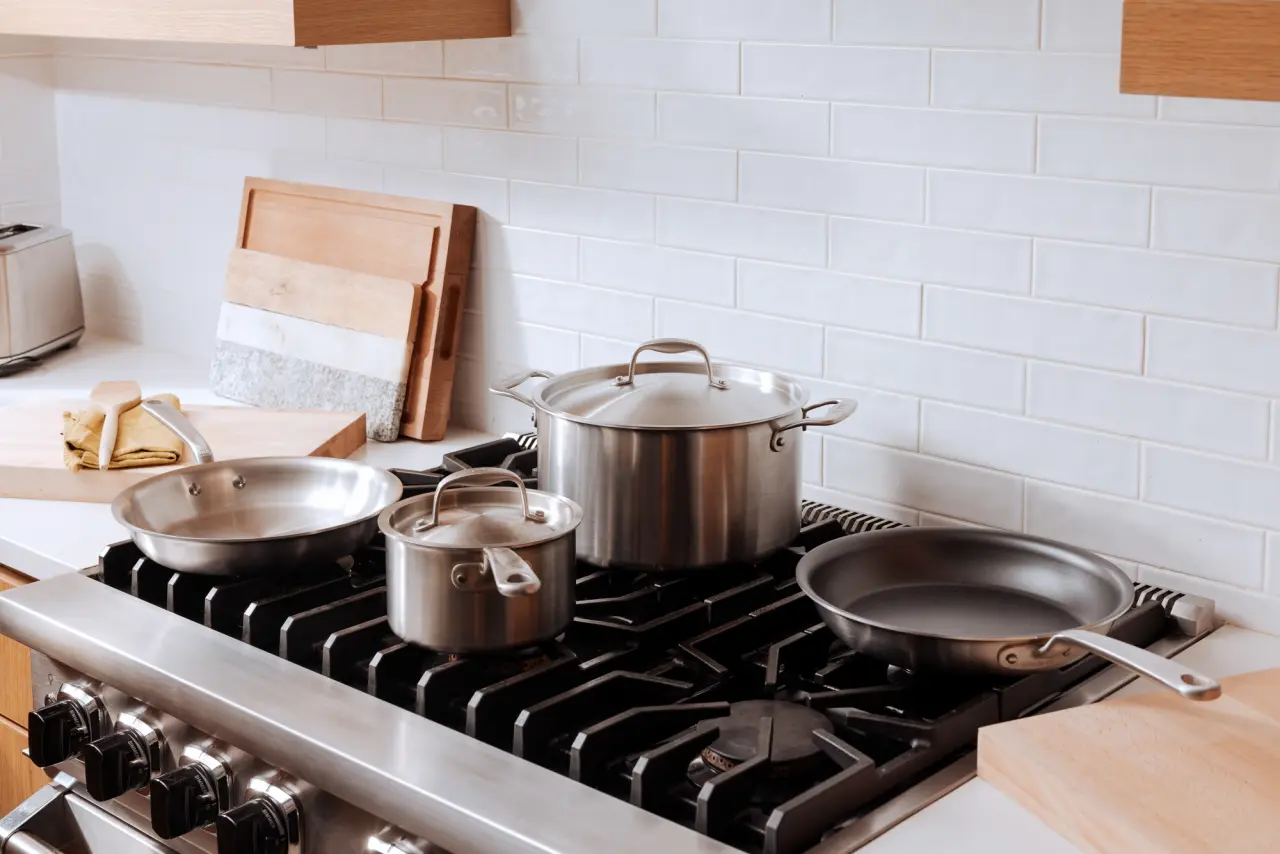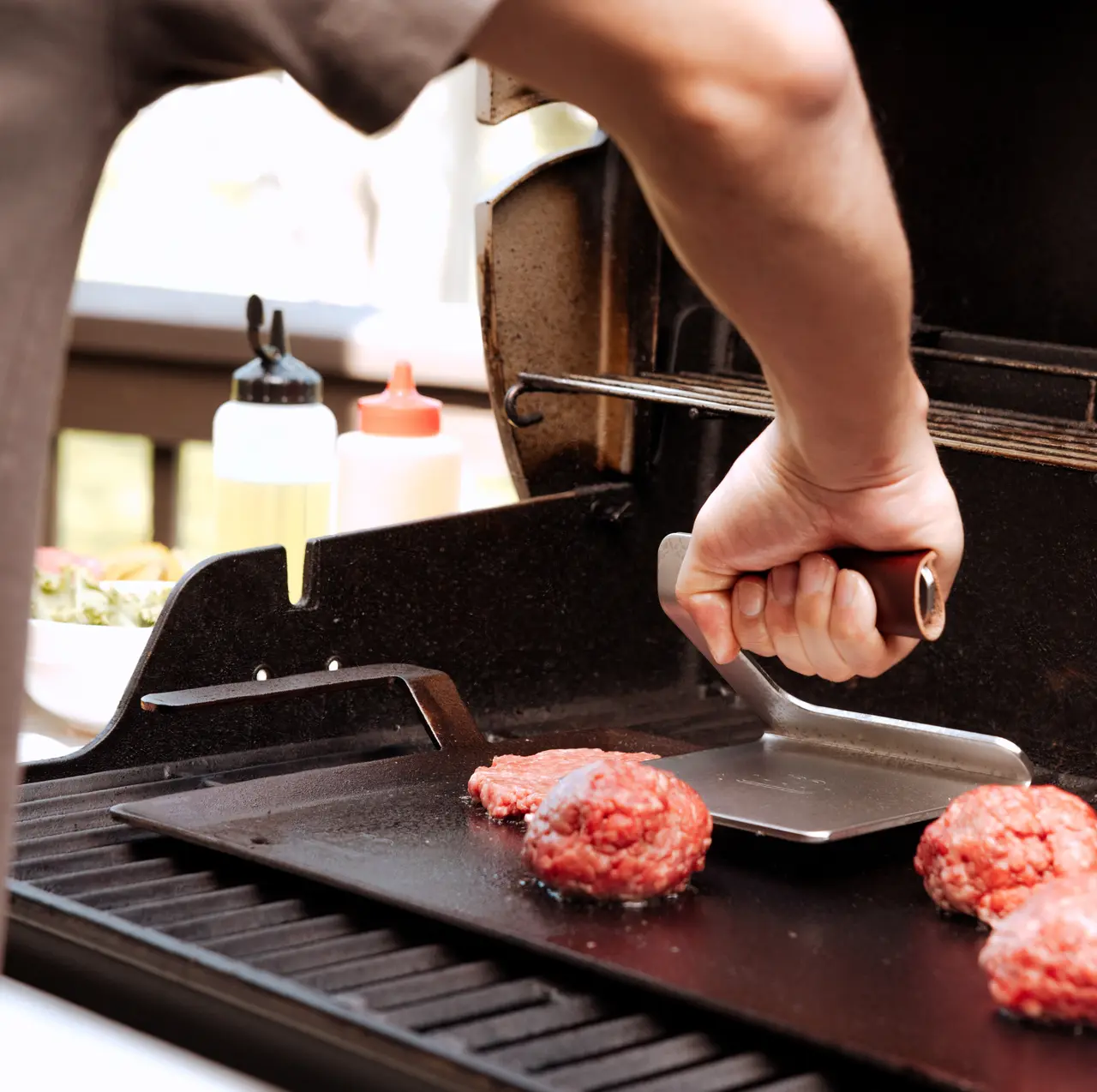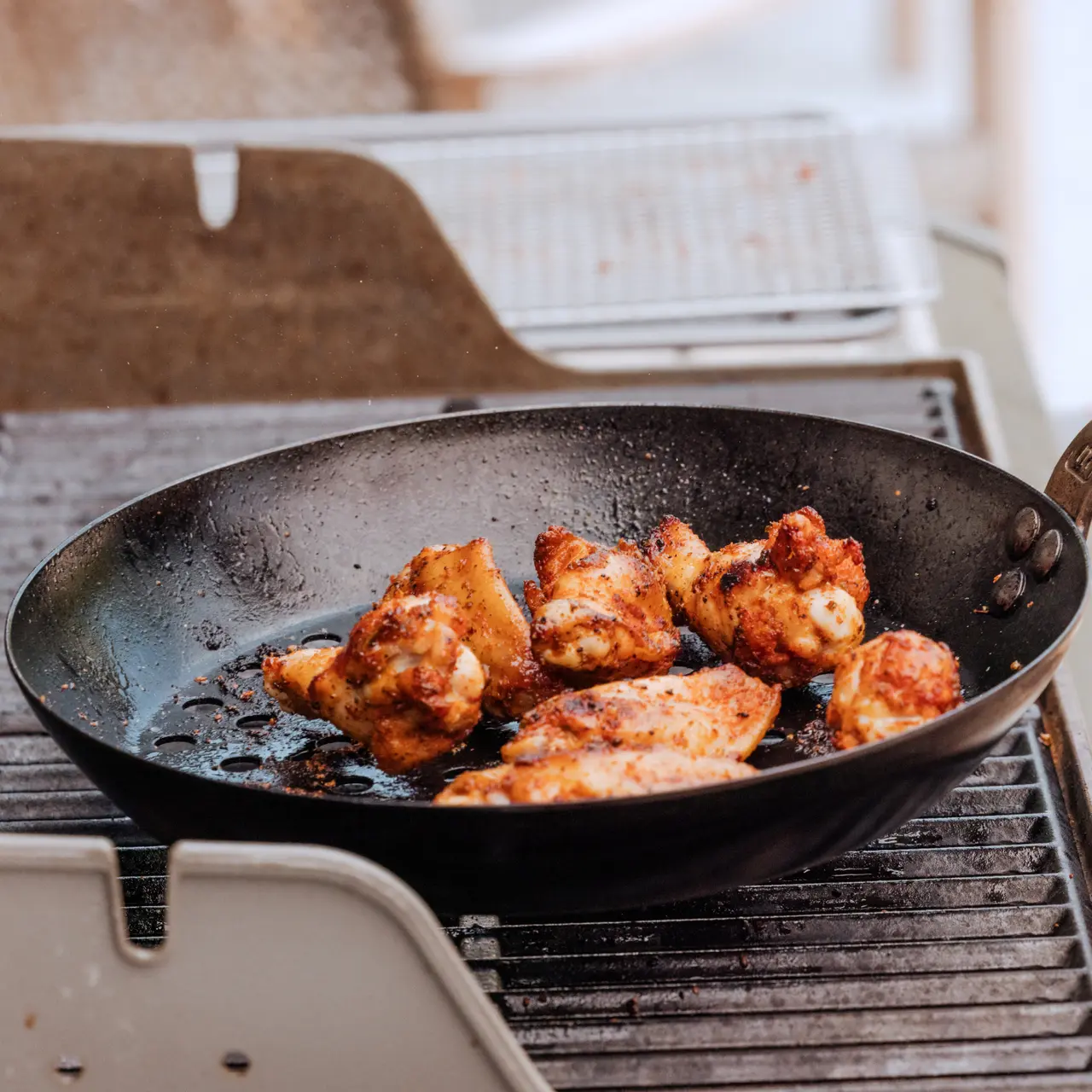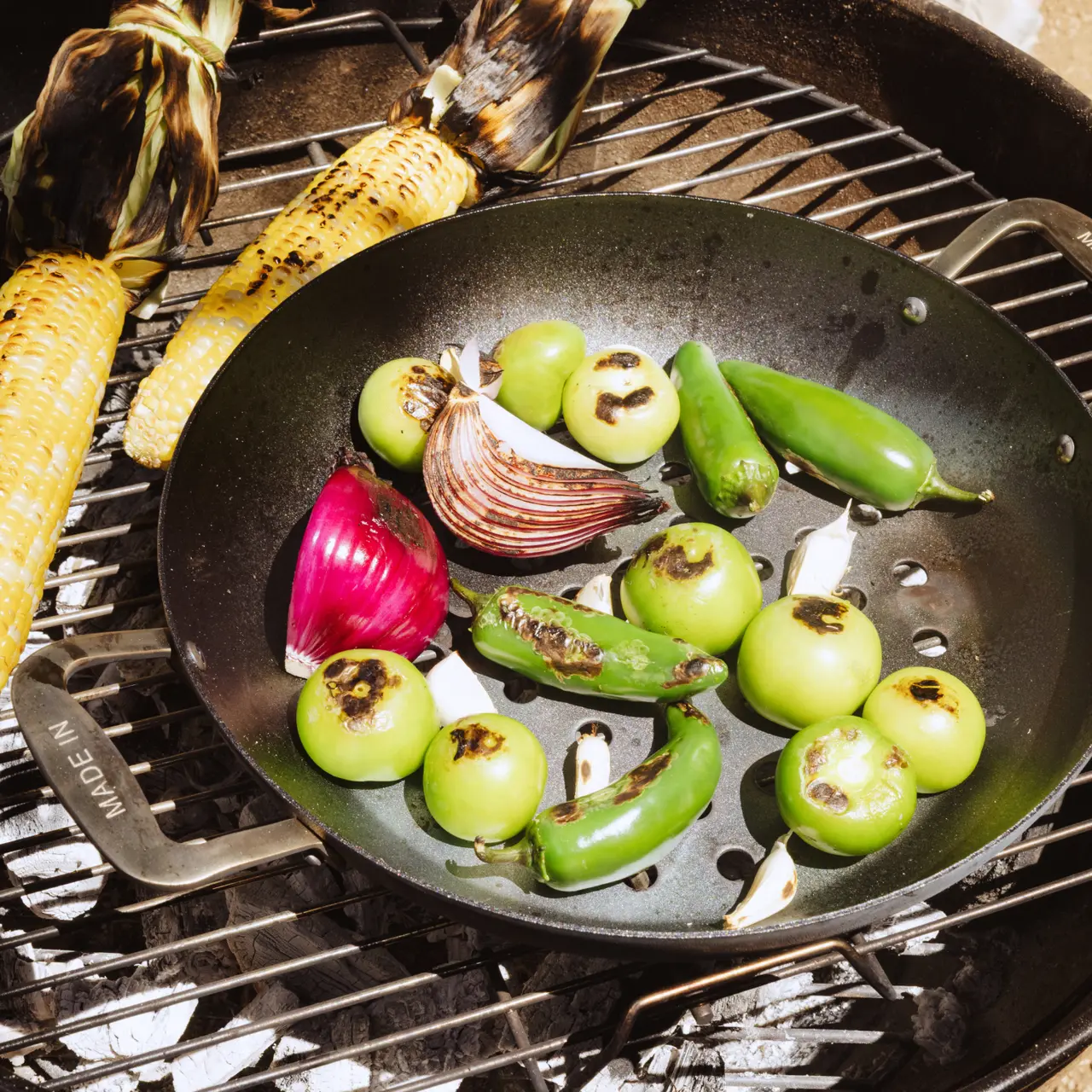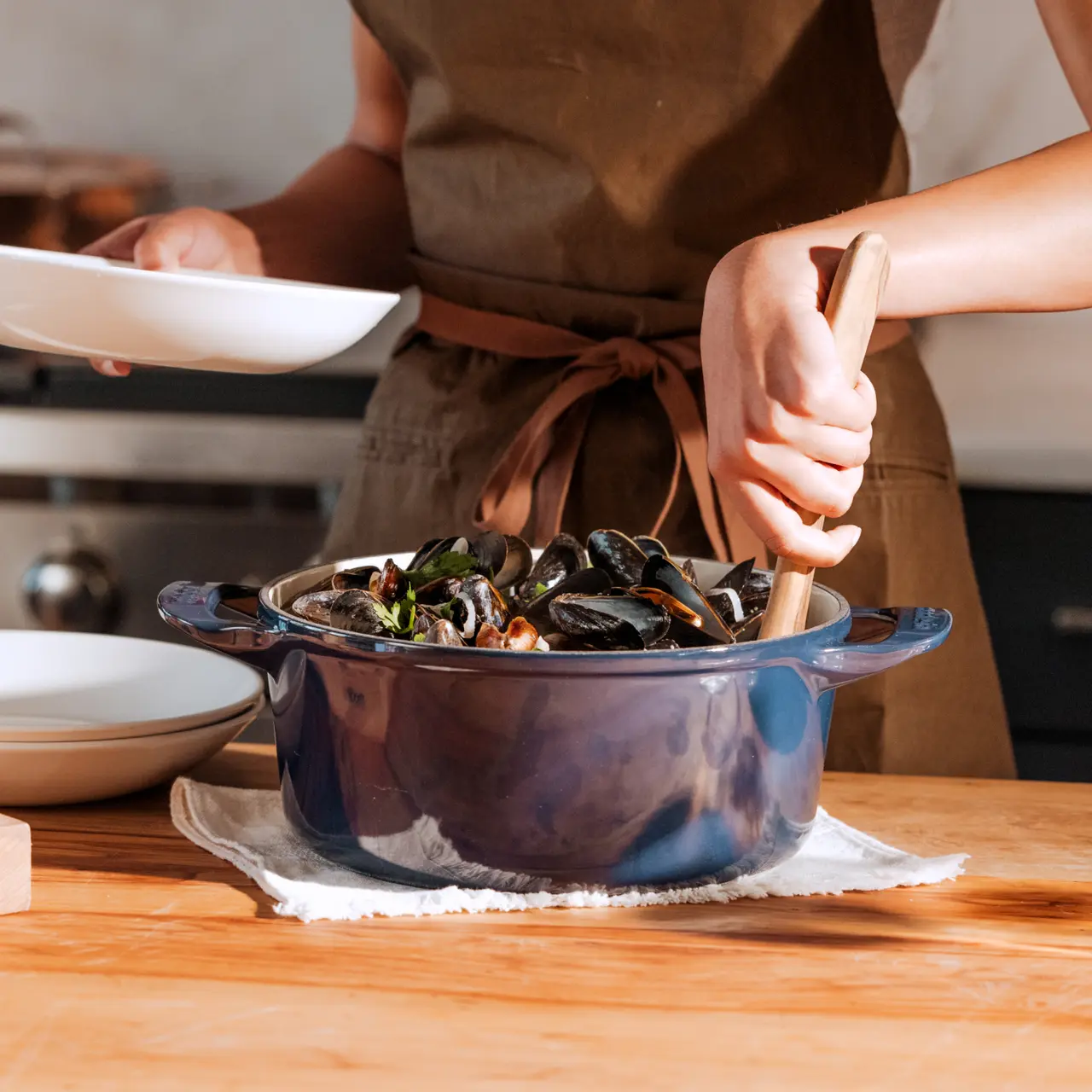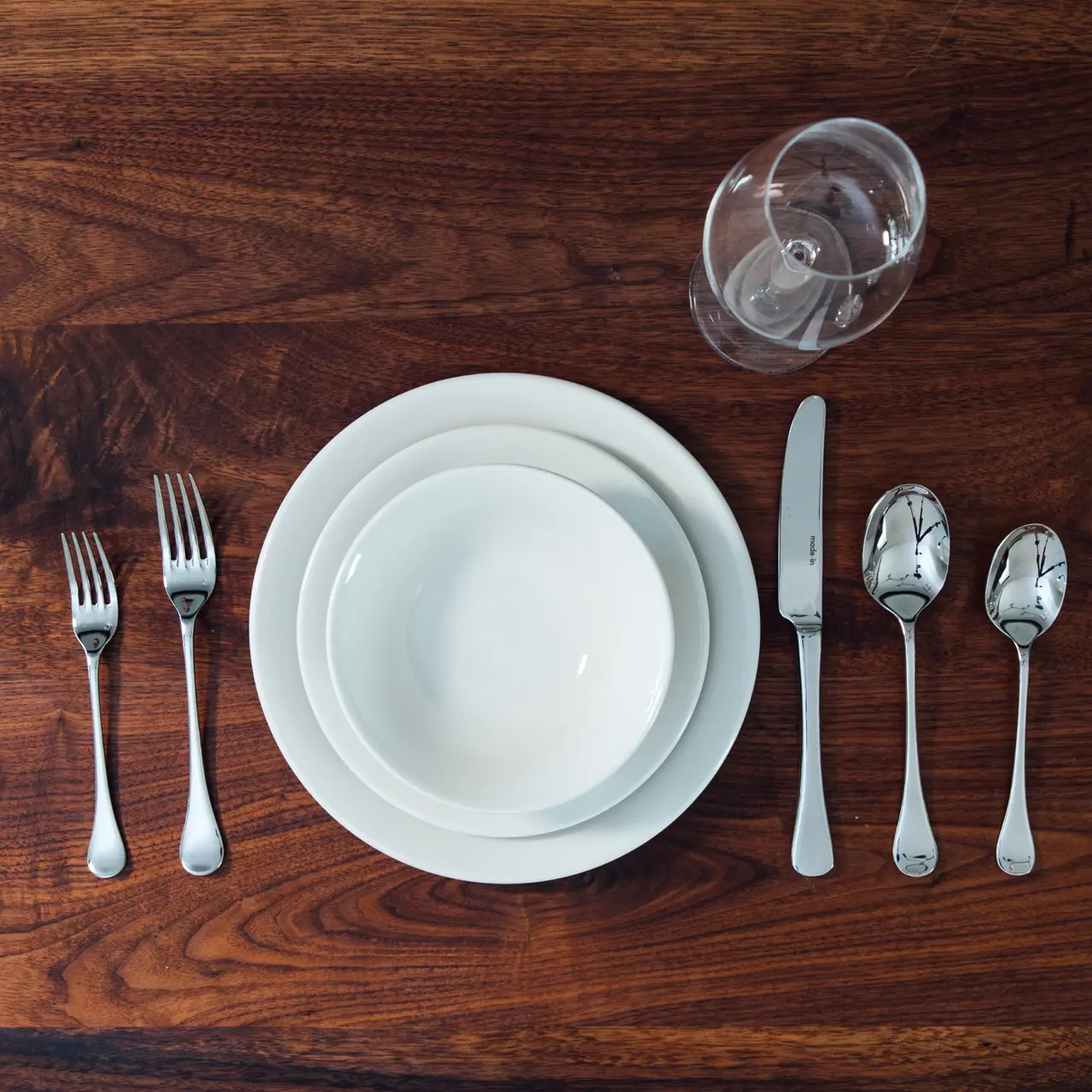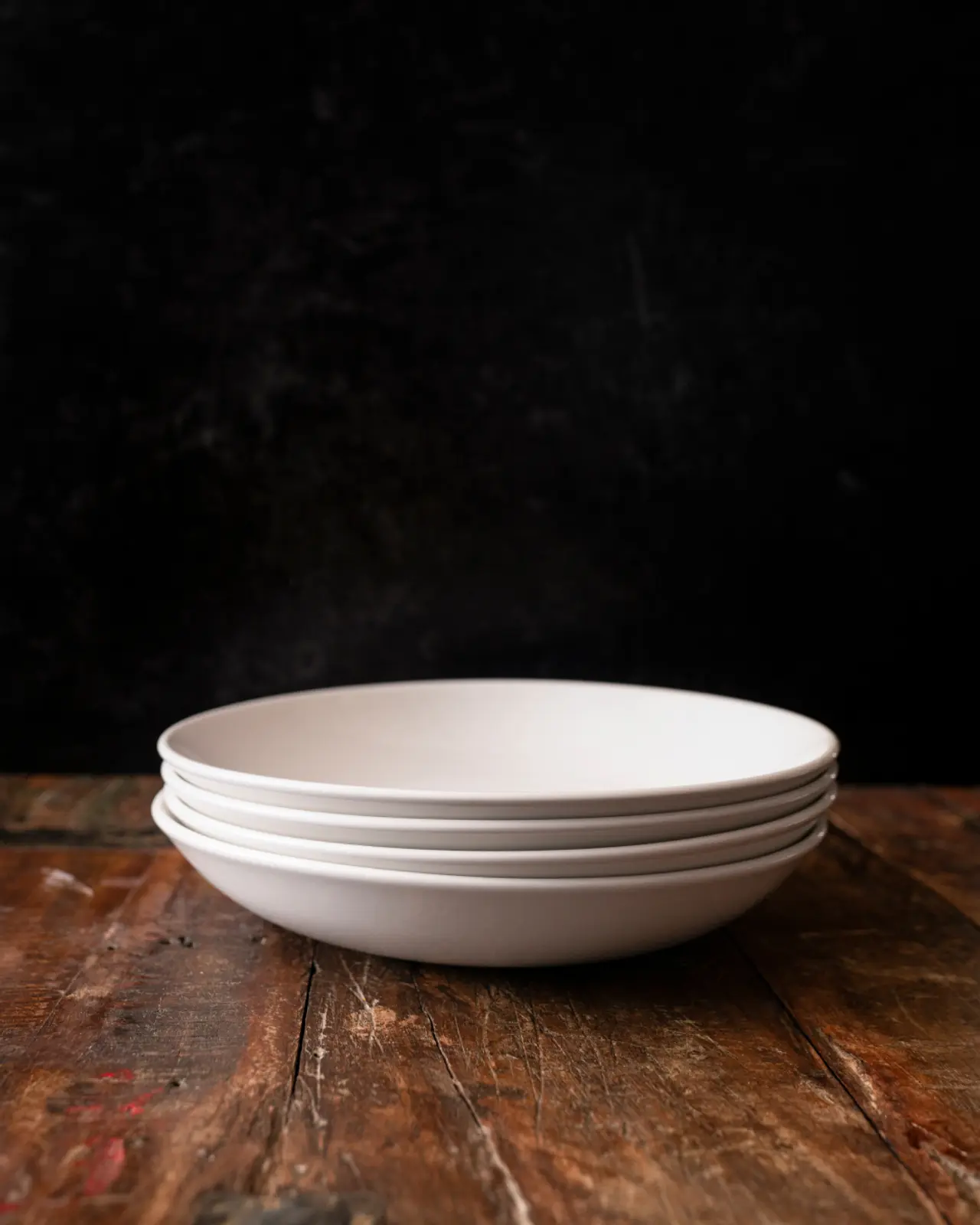At the end of a long day, the last thing anyone wants to do is the dishes. If you're anything like us, you're tempted to stick everything in the dishwasher to save time, sanity, and energy on hand scrubbing.
While this works great for dirty plates and forks, there's a few things you should know before you stack your stainless steel pots and pans in the dishwasher. They can be dishwashed, but there's a few caveats to be aware of ahead of time.
Can Stainless Steel Cookware Go in the Dishwasher?

Technically, yes—stainless steel cookware can go in the dishwasher. But just because it can doesn't always mean it should. Certain types of stainless steel can become warped or corroded in the high-heat, high-pressure environment of the dishwasher, meaning you should hand wash.
What Types of Stainless Steel Can Go in the Dishwasher?
To understand what is and isn’t dishwasher safe, it’s important to understand a bit about metal composition and pan construction. Typically, 18/10 stainless steel is an alloy with a composition of 18% chromium and 10% nickel. These two metals create a chromium oxide layer on the pan, making it resistant to corrosion (especially in wet or humid environments). This means 18/10 stainless steel by itself is non reactive to dishwashing detergents and can absolutely go in the dishwasher because of this.
What Types of Stainless Steel Can’t Go in the Dishwasher?
Now to the exceptions.
Cladded cookware—like ours—has a more complex construction than average stainless steel cookware. These types of pans are constructed with layers of aluminum sandwiched between stainless steel, with the aluminum nearly entirely encapsulated by the stainless steel. However, the rim of the pan may leave a small amount exposed, and while stainless steel itself is usually dishwasher safe, aluminum is not and will start to degrade when in contact with detergents.
Our Stainless Clad Cookware has held up beautifully being dishwashed in both home and professional kitchens without any corrosion. While our Stainless Clad can be dishwashed, we always prefer hand washing to prolong its lifespan and ensure it can keep turning out the stellar performance expected.
Additionally, 18/0 stainless steel, which contains no nickel, may not be suitable for dishwashers as the corrosion protection is gone—though it's very rare to find 18/0 stainless steel cookware in today's market.
Risks of Dishwashing Stainless Steel Cookware
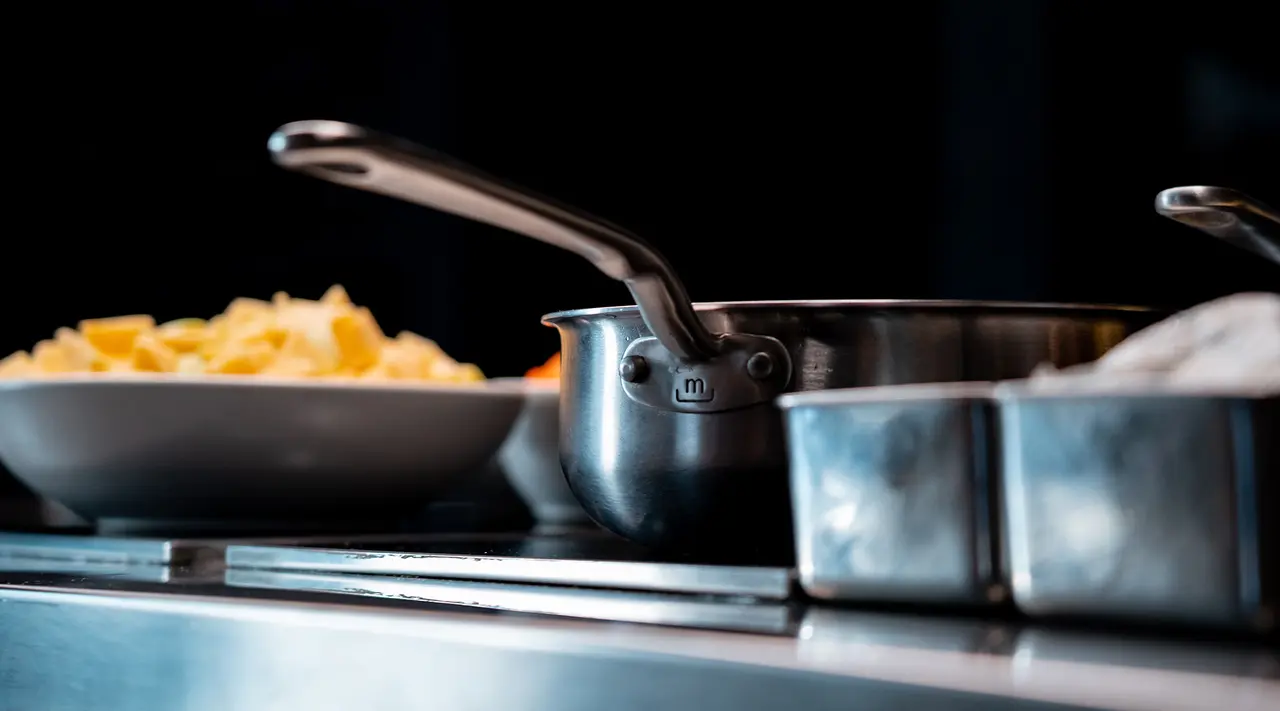
Since aluminum deteriorates when in contact with detergents, repeated use of the dishwasher can cause the aluminum layers to fully degrade and disappear, resulting in an unsafe and impractical pan. It can also cause loss of induction compatibility, as aluminum aids in the magnetic current being transferred to the pan.
Additionally, there are other aesthetic and performance risks associated with using the dishwasher to clean your stainless, including pitting, discoloration, warping, loss of induction compatibility, and even rust.
How to Clean Stainless Steel Cookware Without a Dishwasher
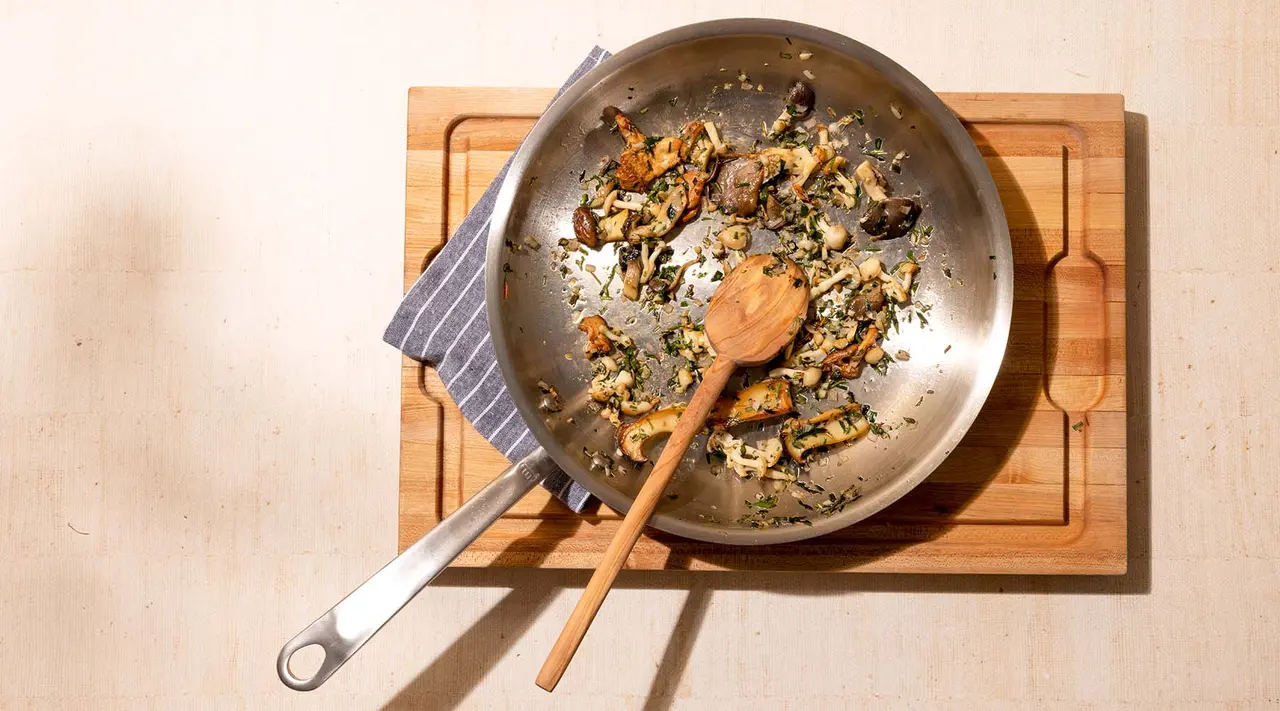
Now that we’ve established our preferences for handwashing your stainless cookware when you're able, let's get into some details about how to properly clean your stainless pans.
Most often, you can simply rinse the pan under hot water once its cooled after cooking, and clean with some mild dish soap and a soft sponge (or a scrub brush or pad if you have some tough messes).
To keep your pans nice and polished, we recommend a powdered stainless steel cleaner, like our Stainless Steel Cleaner. This powder has a mild abrasive quality coupled with an acidic component to cut through grime and keep your pans looking sharp.
If your pan is burnt, pitted, or is boasting some gnarly rainbow stains, we can help with those, too. Check our our associated guides for step-by-step breakdowns of how to restore your stainless to a freshly unboxed shine.
Ready to Cook?
Cleaning stainless steel proves the old adage to be true—if you want something done right, you have to do it yourself. While dishwashing can be a time saver on busy nights, we strongly prefer hand-washing when possible. Not only does this give you full control over how clean your pan gets, it keeps your pan out of the high-heat, corrosive, and chemical-laden environment of the dishwasher.
